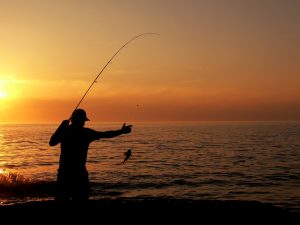Taking Oil Spill Research into the Future with Public Health
– October 25, 2013
The Gulf of Mexico Research Initiative Research Board – a group of twenty science, public health, and research administration experts – convened a Public Health Workshop on July 30th, 2013, to discuss the most pressing needs for future public health related research.
Experts from public health, environmental exposures, oceanography, community research, and socioeconomics attended the workshop. Their goals were to inform future research decisions related to public health impacts of oil spills, develop a portfolio of research important to scientific and lay communities, and facilitate interdisciplinary research that includes public health and oceanography.
Understanding the connections between human health and the ocean and addressing their most pressing issues are complex challenges. Guiding the discussion were three overarching perspectives (“one health,” “portfolio,” and “preparedness”) and two levels of focus (community and individual). Participants sought to maintain a wide research scope while ensuring realistic and useful outcomes, balancing short- and long-term studies, and translating public concerns into scientific questions.
The “one health” perspective covers the relationship between the environment and all species – the interdependency between animal health and human health in an ecological framework. This could include support for activities addressing effects from both direct (i.e. exposure to chemicals or environmental events) and indirect (i.e. consumption of contaminated foods) sources.
The “portfolio” perspective addresses the greatest gaps, priorities, and community needs and considers what research should do in its totality or in the scope of the collection of projects. This could include support for specific activities that are not independently meritorious, but are substantial when taken into the context of addressing a larger collection of research needs.
The “preparedness” perspective looks at research applications drawn from the Deepwater Horizon event for improved response by scientific and lay communities to another oil spill. This could include support for activities that focus on planning and disaster readiness including the capacity and infrastructure building necessary for rapid responses and better real-time monitoring, scenario development, and policy decisions.
At the community level, research topics could focus on community resilience, cultural/socioeconomic differences, ecosystem services, modeling, translating and processing scientific information, risk communication, decision science, community-based participatory research, ethnographic methods, economic impacts, and community-wide mental health effects.
At the individual level, research topics could focus on psychological and physical health, risk management, intervention science, seafood and occupational safety, and composite exposures.
The workshop participants discussed ways to facilitate collaborations between public health and oceanography. This could include hosting multi-disciplinary workshops that involve individuals who understand regulatory policy making, broadening publicity of research opportunities, and developing research questions that naturally encourage cross-disciplinary studies.
Five research themes guide all research funded by the Gulf of Mexico Research Initiative, with the aim to sponsor research with the greatest possible impact. As a result of this meeting, the Research Board updated Theme 5 to include public health research goals: “Impact of oil spills on public health including behavioral, socioeconomic, environmental risk assessment, community capacity and other population health considerations and issues.” The intent of this revision is to increase proposal submissions that address important scientific gaps and community concerns.
Read more information about this meeting at the Gulf of Mexico Research Initiative (GoMRI) History page.
************
The GoMRI Research Board consists of twenty members – ten appointed by BP and ten appointed by the Gulf of Mexico Alliance. The Research Board is the decision-making and oversight body regarding research conducted pursuant to the GoMRI. The role of the Research Board is to ensure the intellectual quality, research effectiveness, and academic independence of the GoMRI programs.
The GoMRI research program is made possible by a grant from BP/The Gulf of Mexico Research Initiative – a 10-year, $500 million independent research program established by an agreement between BP and the Gulf of Mexico Alliance to study the effects of the Deepwater Horizon incident and the potential associated impact of this and similar incidents on the environment and public health.
© Copyright 2010- 2017 Gulf of Mexico Research Initiative (GoMRI) – All Rights Reserved. Redistribution is encouraged with acknowledgement to the Gulf of Mexico Research Initiative (GoMRI). Please credit images and/or videos as done in each article. Questions? Contact web-content editor Nilde “Maggie” Dannreuther, Northern Gulf Institute, Mississippi State University (maggied@ngi.msstate.edu).






